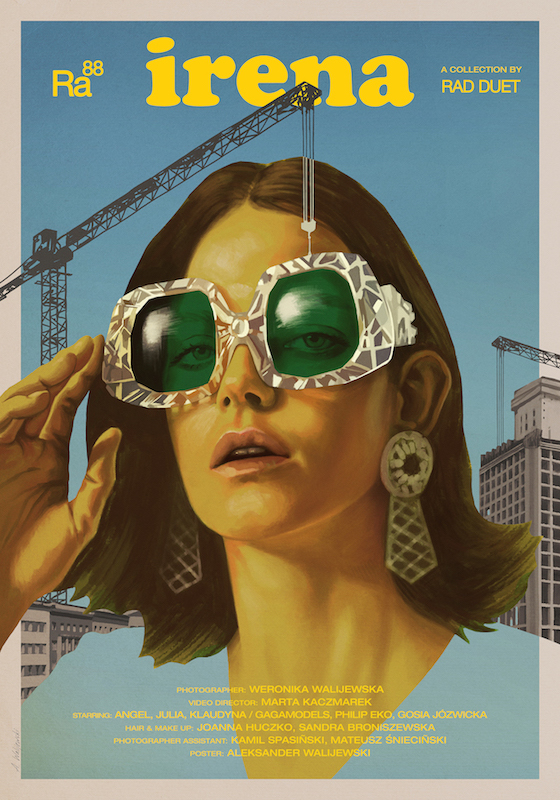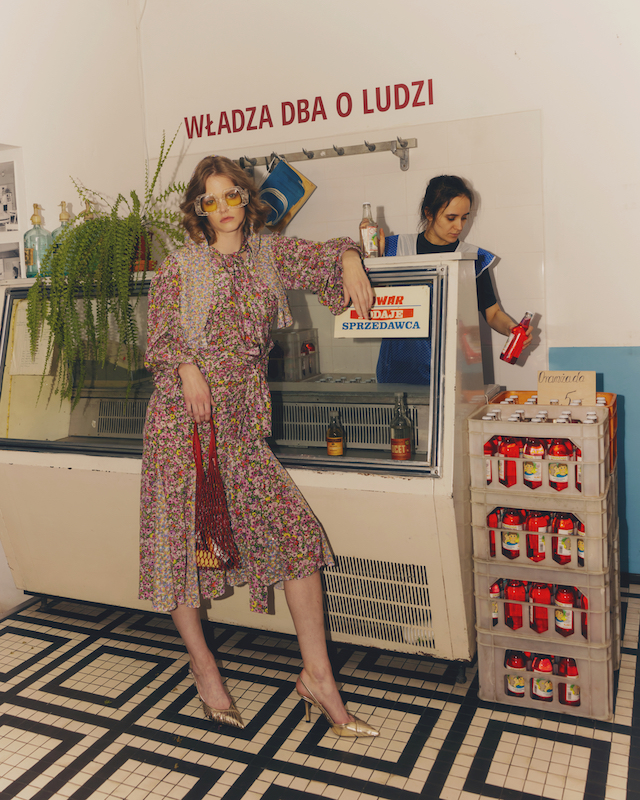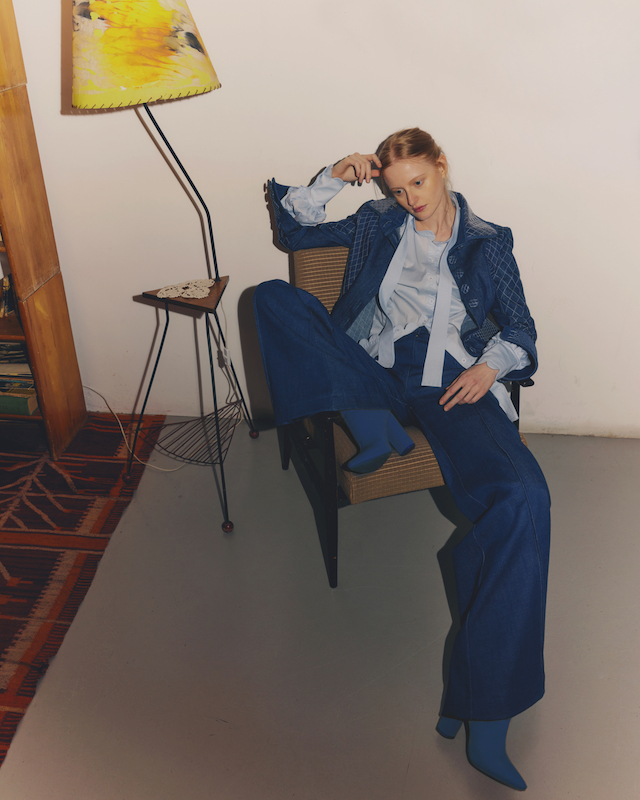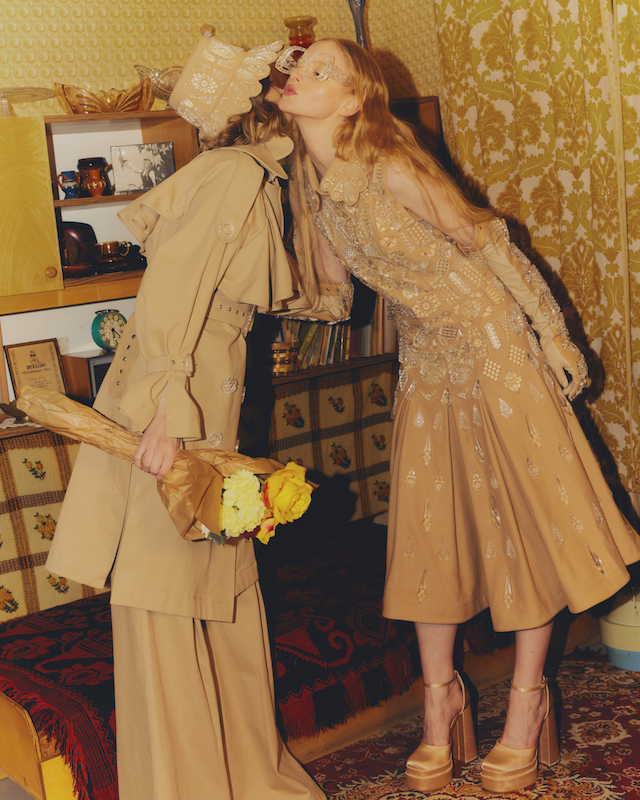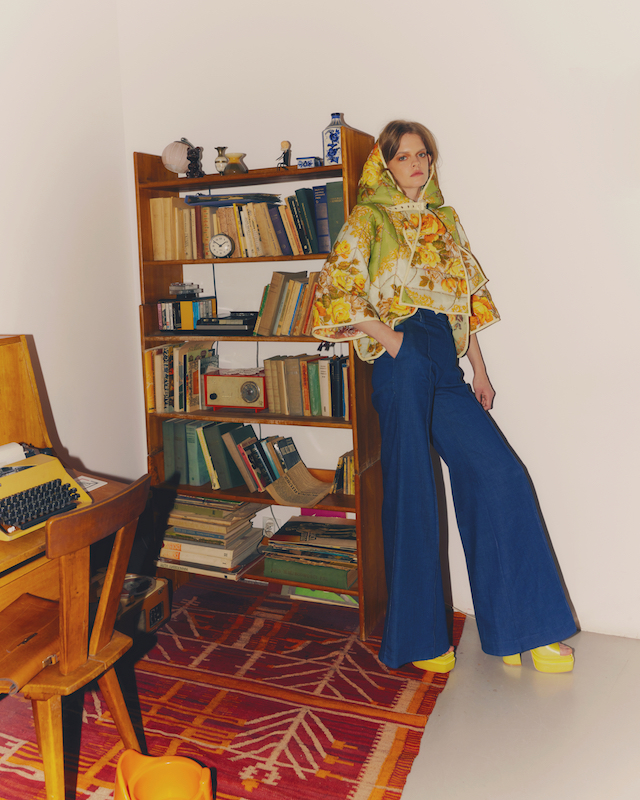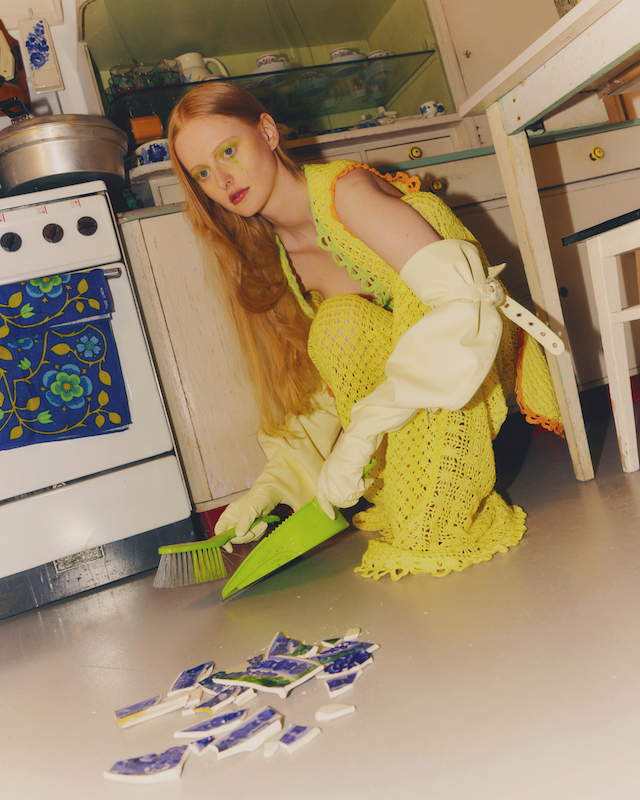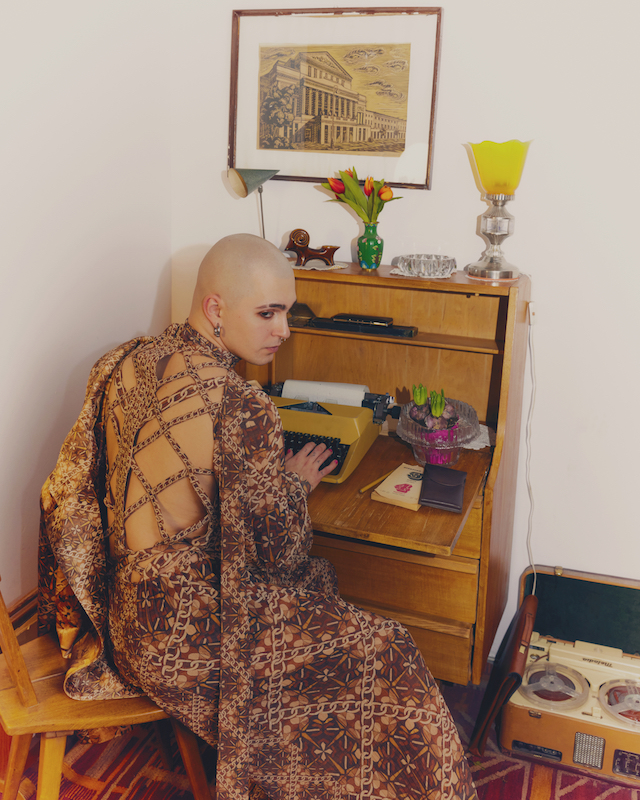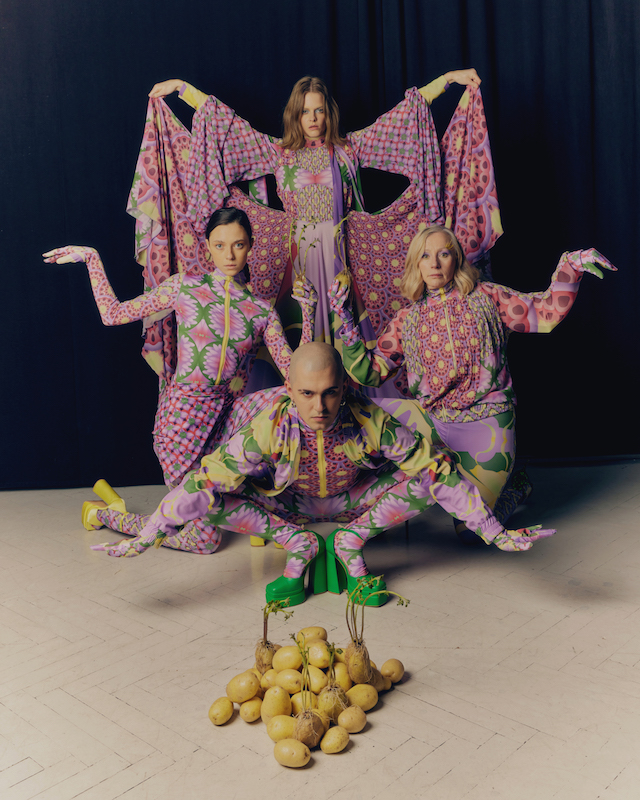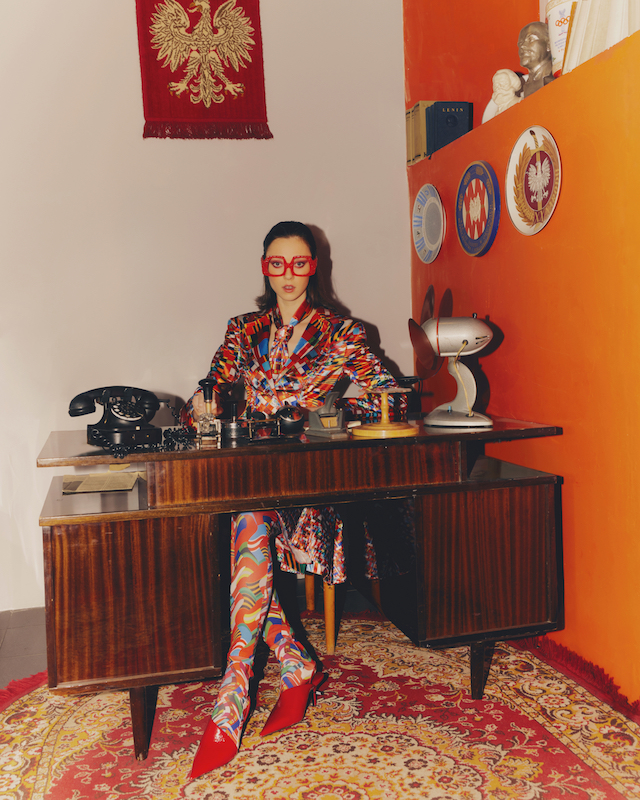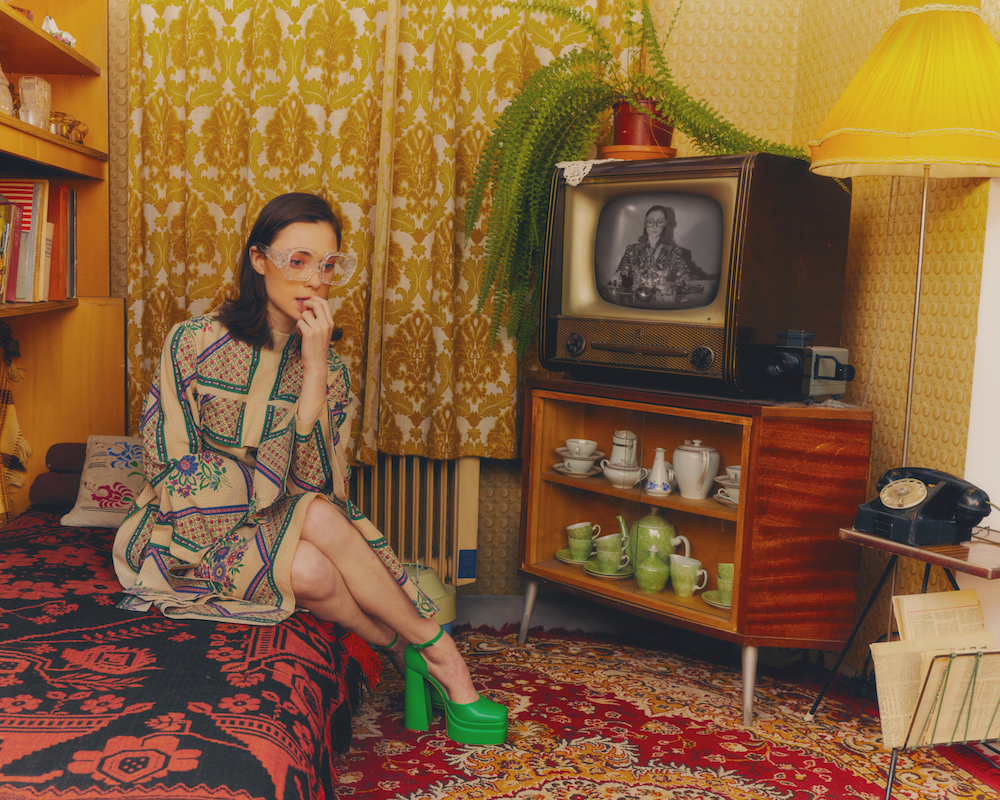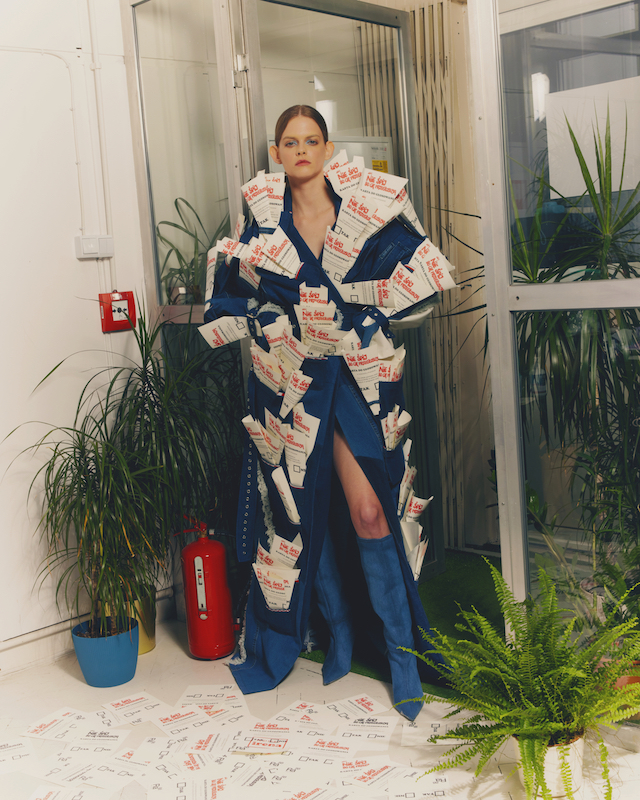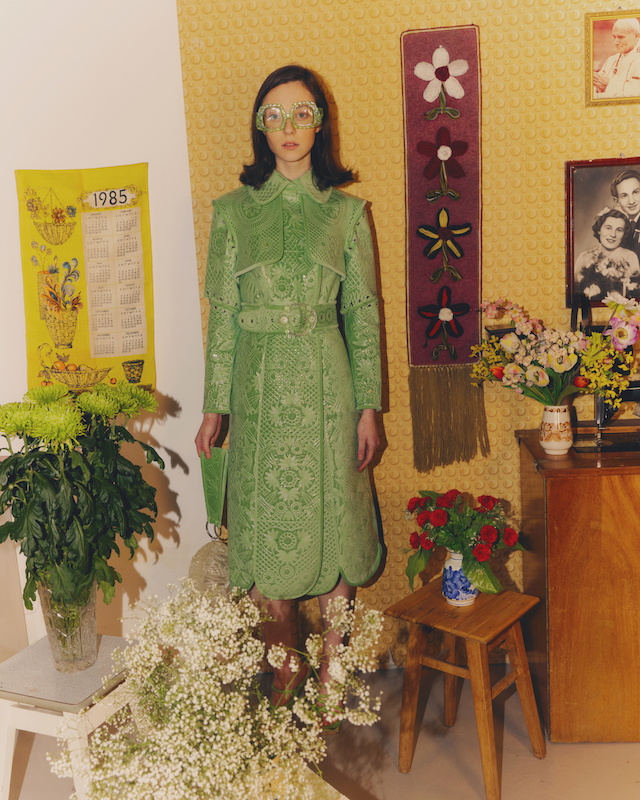The exceptional works of art can be recognized as they speak from soul to soul. When the models of the RAD DUET's collections walked into the room of the ELTE University Library and Archives on the closing day of BCEFW, the unexpected fascination of the sight had this effect on everyone.
One could even say that the two young men's creations shone like Marie Curie's world-changing discoveries.
The analogy is not an accident. The designers, Maciej Józwicki and Juliusz Rusin paid tribute to the amazing scientist - born Maria Salomea Skłodowska, by naming their fashion brand, which was founded in 2017. Marie Curie is an extraordinary figure in the world of science, having won Nobel Prizes in two different disciplines, a distinction she still holds today. Her journey is a fascinating example of the perseverance and dedication of Polish women.
Maciej and Juliusz pay tribute to them in all their work.
For the brand, based in Poznan, the challenging history of Polish is an inexhaustible source of inspiration, as Polish culture, identity, social change and stereotypes.
RAD DUET strongly believes in quality and craftsmanship, constantly blurring the boundaries between past and future by creating timeless pieces.
They take a hands-on approach to design, combining unique solutions with a revival of old craft techniques. They also regularly make or modify materials themselves; they like to use unconventional materials and often recycle and upcycle old fabrics.
After quite a few initial successes, a real breakthrough moment for the brand came in 2019 when they launched the
"Wiesia" collection. Inspired by Włocławek faience and decorated with hand-painted flowers, one of the pieces was worn by acclaimed Polish influencer Jessica Mercedes at Paris Fashion Week. Photos from the event were widely published around the world including on the VOGUE US Instagram account.
"Wiesia" went on to win all of the important fashion and design awards in Poland and has been repeatedly called in the media one of the most important collections in the history of Polish fashion, and designers were described as pioneers of Polish couture.
In the hardships of the global pandemic in 2020, RAD DUET decided to focus on presenting a ready-to-wear interpretation of the "Wiesia" collection called "Kuyavian Home". The campaign for the collection starring Wiesława (83 y.o.), Maciej's grandmother after whom the previous collection was named, became another viral moment for RAD DUET on social media.
In early 2022 RAD DUET represented Poland at Expo in Dubai with a project called
"Kowalski in Space", and December saw a premiere of the highly anticipated "Irena".
"Irena" is the second installment of a trilogy named after important women for designers.
The collection took almost 3 years to complete due to its scale and couture ambitions.
The launch was an immediate success, the campaign was widely praised by the Polish fashion industry as one of the best of the year.
Irena is a female name of Greek origin, meaning: she who brings peace.
IRENA was created with a focus on the period of the Polish People's Republic, especially the "welfare" years of the 1970s. After the folkloristic "Wiesia", the image of life was transposed to the city, to reinterpret another aesthetically controversial period of history with a magical eye. While looking at the ups and downs of that historical period, they compare it with today's unstable political and economic situation.
Conceptually, the collection is divided into three parts: the first is inspired by social issues (the Solidarity movement's workers' revolution, activism and propaganda), the second is about 'everyday' life at home, and the 'illusory part' is made up of highly fascinating silhouettes built around crystals.
The collection is particularly inspired by films directed by Andrzej Wajda, such as "The Marble Man", "Man of Iron" and "Hunting Flies". The iconic figure of Agnieszka, played by the phenomenal Krystyna Janda, has been reinterpreted as a symbol of freedom, youth and invincible faith in the form of an embroidered denim silhouette with a blue shirt.
The social themes section, with silhouettes made from recycled materials, is a modern take on the clothing of shipyard and steel mill workers, evoking the image of Maciej Birkut.
The leitmotif of the IRENA clothing line is crystal glass from the "Irena" glass factory in Inowrocław. Heavier than others, and perfectly transparent, thanks to beautiful cuts it has an extraordinary ability to split light. In the collection, the crystal appears in the form of raised embroidery and numerous crystal castings. All crystals are designed, cast, and finished by the designers themselves. The beige dress that dominates the collection is covered with several thousand hand-sewn crystal casts, and the work on it lasted continuously for over two years. The silhouettes are complemented by hand-cast glasses, handbags, buckles, belts, buttons, and other details.
The 'everyday life' section features silhouettes made from recycled sofa bedspreads, a hooded puffer jacket with zircons in quilts, a silk day dress with sequined hood an origami-inspired dress out of old canvas for embroidering with mouline and a hand-crocheted jumpsuit.
They also created a jumpsuit with braided back and a jacket both inspired by Marquetry woodwork. Dominant colors refer to scarce goods: lemons, oranges, and bananas.
In the section on social issues, the silhouettes of the "Colorado potato beetle" play a special role. In the 1950s, this insect was used for political manipulation, treating the potato beetle plague as the main reason for shortages in the food market, brought to Poland by the enemies of socialism. Here we explore the analogies between how the insect was treated then and how LGBTQ+ people are still often treated in society today.
They presented the life cycle of the beetle from egg to imago in the form of geometric prints in the style of the 70s. This is how four carefree silhouettes were created: a long, chiffon, pleated dress inspired by the construction of insect anatomy as a ruler of the clan/mother and the babies that include sports overalls, sweatshirts, bomber jackets, and skirts.
This era cannot be represented without its dark side. The villain of the collection is the silhouette of the "Dictator".
Devilish and tailored jacket with skirt with sharp lapels and a pencil skirt were sewn from velvet mockingly printed with swirling ribbons from dozens of General Wojciech Jaruzelski's decorations.
In the photos of the campaign, the Dictator announces martial law (historical event on December 13th,1981 in Poland called a "peace operation" at the time) or maybe talks about women's rights?
The epilogue for the collection is the silhouette - "Election coat" sewn from recycled jeans, with hundreds of embroidered pockets, loops, and cracks, into which voting cards a call for freedom of speech and choice.
The whole collection is a tribute to the ancestors of the designers, who have contributed to progress through their personalities and their work:
"We dedicate the collection to two Irenas - Juliusz's grandmother, a chemist, and Maciej's great-grandmother, a seamstress, strong women living in the times of the People's Republic of Poland, who changed the history of our families."
The whole collection is a message of hope, freedom and the fight for a better future tailored in clothes.
And how the designers commented on the Hungarian debut:
"Budapest is a very beautiful and interesting city, the whole team working on BCEFW is extremely professional, kind and helpful and we had a wonderful time during those few days in Hungary. We are very content with our presentation, everything exceeded our expectations and went really well.
From the beginning we were sure we want to have our presentation at beautiful ELTE library and it really suited our vision. After our show the reception of our collection was overwhelmingly good and we spend the whole day after responding to wonderful and congratulatory messages. We couldn't be happier really and we would love to be a part of BCEFW permanently."
FASHION VIDEO
Campaign:
Lookbook:
_______
Credits:
Cover: The Sprakle Content/HFDA on BCEFW
RAD DUET Photos: Weronika Walijewska
Video: Marta Kaczmarek
Models: Angel, Julia, Klaudyna / GAGAMODELS, Philip Eko, Gosia Józwicka
Hair & Make up: Joanna Huczko, Sandra Broniszewska
Photographer assistant and lighting advisor: Kamil Spasiński, Mateusz Śnieciński
Poster for the collection: Aleksander Walijewski



